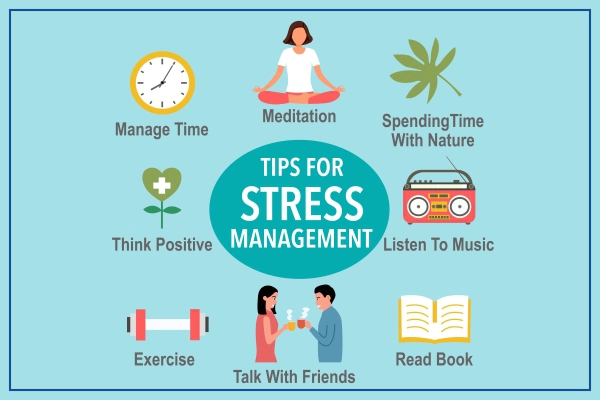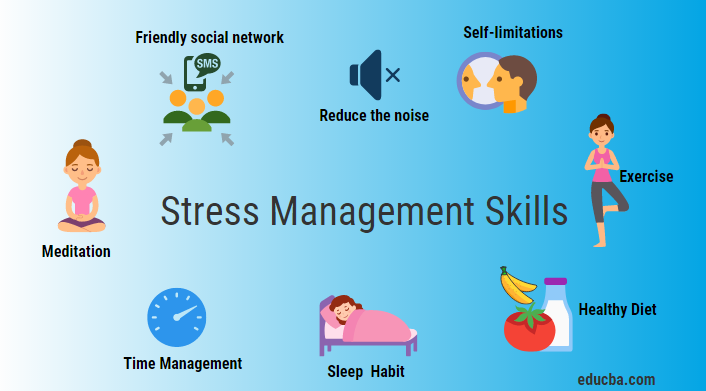
Proven strategies on how to manage stress In Today’s fast-paced world, stress has become an inevitable part of our daily lives, especially during busy or high-pressure periods. Whether you’re dealing with a tight deadline at work, balancing family responsibilities, or simply trying to juggle too many tasks at once, stress can quickly become overwhelming. But the good news is that there are effective ways to manage stress especially when things get hectic.
In this article, we’ll explore How to manage stress during busy times, providing actionable tips, expert advice, and science-backed strategies to help you navigate stressful periods with a clear mind and calm heart.
Understanding Stress, and Why It Happens?
Before diving into Stress management techniques, it’s important to understand what stress is and why it affects us. Stress is a natural physical and mental response to demands or challenges. While some stress is healthy and can motivate us to perform better, chronic stress can negatively impact our health, relationships, and overall well-being.
Causes of stress during busy times may include:
- High Workload or tight deadlines
- Over-commitment to personal or professional responsibilities
- Financial pressures
- Family or relationship conflicts
- Health concerns or the lack of self-care
The body responds to stress by releasing hormones like cortisol and adrenaline, preparing you for a fight-or-flight response. While this may help in emergency situations, prolonged stress can lead to burnout and exhaustion. That’s why learning how to manage stress during busy times is crucial for maintaining long-term health and productivity.
Effective Stress Management Techniques and How to Manage Stress?

Managing stress requires a combination of mental, physical, and lifestyle strategies. Herre are some practical techniques to help you stay calm and focused during busy times:
Prioritize Tasks and Set Boundaries
Ne of the biggest stressors during busy periods is feeling overwhelmed by an ever-growing to do list. It’s important to prioritize your tasks by identifying which ones are most urgent and which ones can wait,
How to Manage Stress through task prioritization:
- Break down big tasks into smaller, more manageable steps
- Use the Eisenhower Matrix to classify tasks as urgent or important. Focus on what matters most and delegate or eliminate less critical tasks.
- Set Clear boundaries with others. Learn to say no to new tasks or commitments that would add unnecessary stress.
Practice Deep Breathing and Mindfulness
When you’re stressed, you’re breathing often becomes shallow, which can make the feeling of anxiety worse. By practicing deep breathing exercises and mindfulness, you can activate your body’s relaxation response and lower cortisol levels.
Breathing exercises to manage stress:
- 4-7-8 Breathing: Inhale through your nose for 4 counts, hold for 7 counts, and exhale through your mouth for 8 counts. Repeat several times.
- Box Breathing: Inhale for 4 counts, hold for 4 counts, exhale for 4 counts and hold again for 4 counts.
Take Regular Breaks
During periods of intense activity, it’s easy to fall into the trap of working non-stop, but this can actually increase your stress and decrease your productivity. Research shows that taking regular breaks can help your brain reset and improve focus.
How to manage stress with breaks:
- The Pomodoro Technique: Work in 25-minute intervals followed by a 5-minute break. After four intervals, take a longer 15-30-minute break
- Go for a walk: Stepping outside for some fresh air, even for just 10 minutes, can help clear your mind and lower stress.
The Role of Exercise In Managing Stress
Regular physical activity is one of the most effective ways to reduce stress. Exercise releases endorphins your brain’s feel-good chemicals that can boost your mood and help you to manage stress. Put it helps lower cortisol levels and improves sleep, which are essential for stress recovery.
Types of exercise to help manage stress:
- Cardio: Running, cycling, or swimming to get your heart rate up.
- Yoga and Pilates: These mind-body exercises are especially effective for reducing stress and increasing relaxation
- Strength Training: Lifting weights can help release build-up tension in your body.
Even if you don’t have time for an hour at the gym, short bursts of exercise such as stretching or quick workouts can make a significant difference in how you feel.
Getting Enough Sleep is a Key to Stress Management
When you are busy, sleep often becomes the first thing you sacrifice. However, lack of sleep can worsen stress, impair decision-making, and lead to burnout. Ensuring you get quality sleep is essential for stress recovery.
How to manage stress with better sleep:
- Establish a regular sleep schedule: Go to bed and wake up at the same time each day to regulate your body’s internal clock.
- Create a calming bedtime routine: Avoid screens, drink herbal tea, or read a book to help wind down before bed.
- Limit Caffeine intake: Caffeine can interfere with sleep quality and increase anxiety, so avoid it in the afternoon and evening.
Expert Advice on Managing Stress During Busy Times
Experts agree that managing stress effectively involves creating sustainable habits that promote mental, emotional, and physical health. Dr. Sian Beilock, a cognitive scientist, emphasizes that stress management is about training your brain to stay calm under pressure.
Expert Tips Includes:
- Cognitive Reframing: Change how you view stressful situations by focusing on the positive aspects or learning opportunities.
- Social Support: Reach out to friends, family, or colleagues for emotional support and to share the load.
- Time Management: Use time-blocking techniques to manage your day efficiently.
Common Stress Management Myths
As with any wellness trend, there are several common myths surrounding stress management. Let’s debunk a few of them:
- Stress is always bad for you.
- A certain amount of stress can be motivating and help you perform better in challenging situations.
- You should always keep pushing through stress.
- Taking breaks and practicing relaxation techniques is essential for recharging and maintaining productivity.
- Stress management requires major lifestyle changes.
- Small, consistent habits like breathing exercises, regular breaks, and time management can make a big difference.
Conclusion: How to Manage Stress and Thrive During Busy Times
Learning how to manage stress effectively during busy times is a life skill that can make a profound difference in your mental and physical well-being. By prioritizing tasks, practicing mindfulness, exercising regularly, and ensuring quality sleep, you can transform the way you handle stress.
While stress will inevitably arise, adopting healthy stress management strategies can help you stay calm, focused, and productive no matter how busy life gets. Embrace these strategies today, and you’ll soon experience a noticeable improvement in your ability to manage stress during even the most hectic times.
